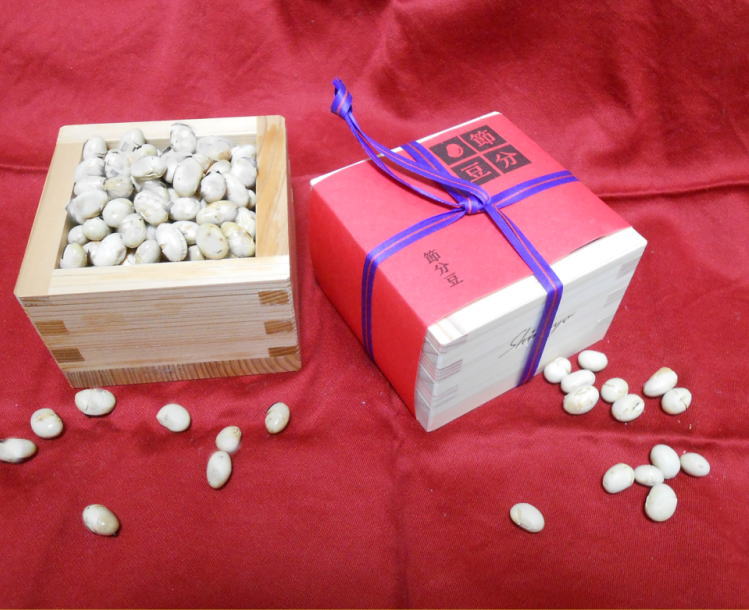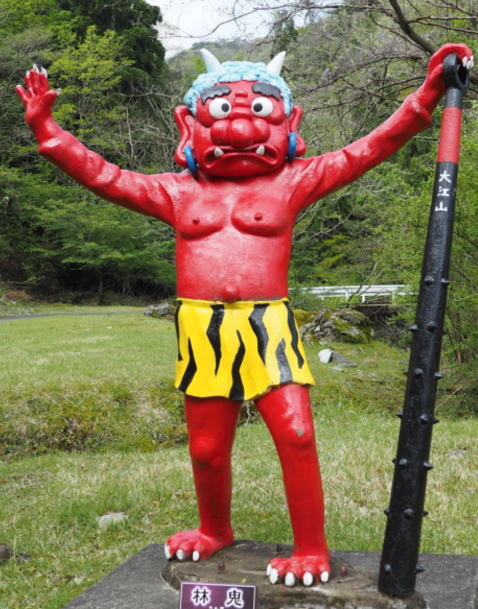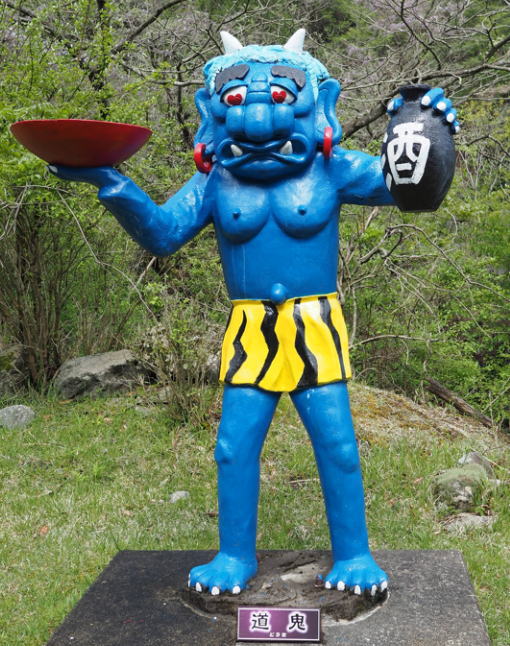
February 3 is the day when nationwide bean-throwing takes place. People would chase Oni (the Japanese equivalent of a demon) while shouting, “Oni wa Soto, Fuku wa Uchi!” (Demons out, fortunes in!) Here, Oni represents negative energy generating, particularly at the change of season. But, of course, since there are no such beings in the real world, some people wear an Oni mask to play the role.
First of all, let’s see what makes this day so significant. Called “Setsubun” or a seasonal division, it signals the advent of a new season, namely, spring in this case. Technically, Japan has other three Setsubun occasions in summer, autumn, and winter. But this vernal one is the most noteworthy, and hence the term itself almost refers to February 3. Probably because spring is the most-awaited time of year for many people.
 But now that spring has come, why do people have to scatter beans? The reason lies in this mythical creature Oni, believed to be vulnerable to beans. So now, for those who may wonder what mere food item such as beans can do to demons, here’s the story like this:
But now that spring has come, why do people have to scatter beans? The reason lies in this mythical creature Oni, believed to be vulnerable to beans. So now, for those who may wonder what mere food item such as beans can do to demons, here’s the story like this:
Once upon a time, in the era of Emperor Uda (887 - 897), Oni used to come down to ravage the city, annoying and pestering people. Finally, a priest on Mt. Kurama in Kyoto stood up to save the situation. After offering special prayer, he located the creatures’ den at a stone cave near Midorogaike Pond in northern Kyoto. He then blocked the cave exit and attacked them by throwing a 546 kg (1204 lbs) of roasted soybeans, which finally crushed their eyes.
 Still not convinced how beans can be a weapon? That makes two of us, and there’s another ‘flimsy’ explanation, just in case you’re interested. It’s about a pun. The Japanese word for beans is “Ma-me (豆)”, which also sounds as “Ma-me (魔目) or evil (or demons’) eyes”, and that can qualify as powerful bullets of a missile. For the ancient Japanese, who firmly believed in spirits dwelling in words and sounds, as well as beans and cereals, the explanation was just as clear as crystal.
Still not convinced how beans can be a weapon? That makes two of us, and there’s another ‘flimsy’ explanation, just in case you’re interested. It’s about a pun. The Japanese word for beans is “Ma-me (豆)”, which also sounds as “Ma-me (魔目) or evil (or demons’) eyes”, and that can qualify as powerful bullets of a missile. For the ancient Japanese, who firmly believed in spirits dwelling in words and sounds, as well as beans and cereals, the explanation was just as clear as crystal.
By the way, a Buddhist adaptation of bean-throwing and Oni supports the creature’s possible conversion from evil to goodness after hurled beans neutralizing the negativity within the being. So their interpretation of the “Demons out, fortunes in” chant is expelling darkness out of ourselves and putting it back as good after the conversion. Therefore, it’s a cheerful ritual to awaken evil minds to enlightenment. That’s cool since compassion is a lovely Buddhist concept, after all.
Oops! We cannot forget another outstanding custom on this day. That’s eating a special kind of Sushi called “Ehō-Maki” (a long, Nori-wrapped sushi roll), and you may wonder why. To make a long story short, I’d say it’s a delicious conspiracy started by the marketing industry to sell more sushi products — just like chocolate on Valentine’s Day!

|








